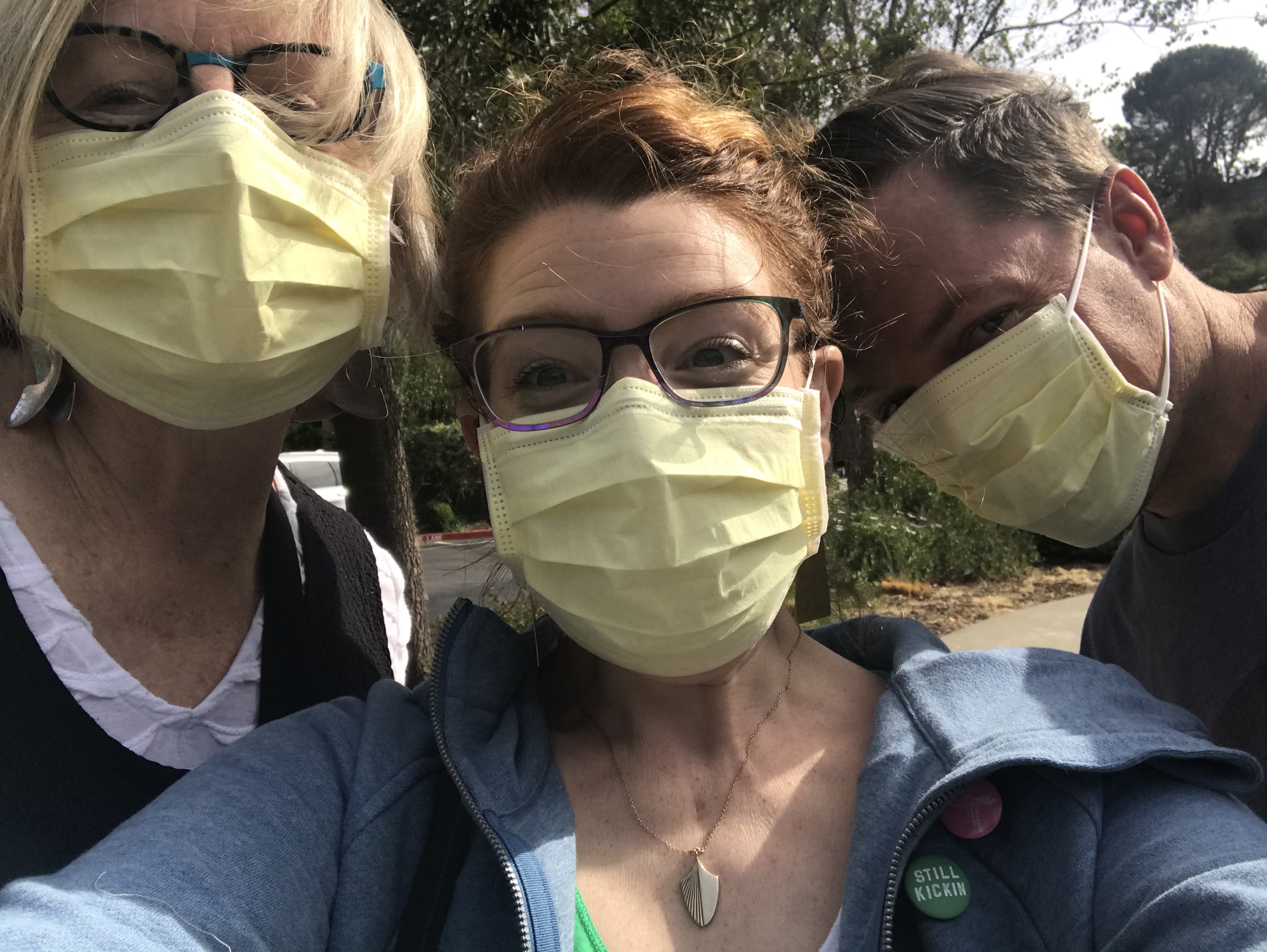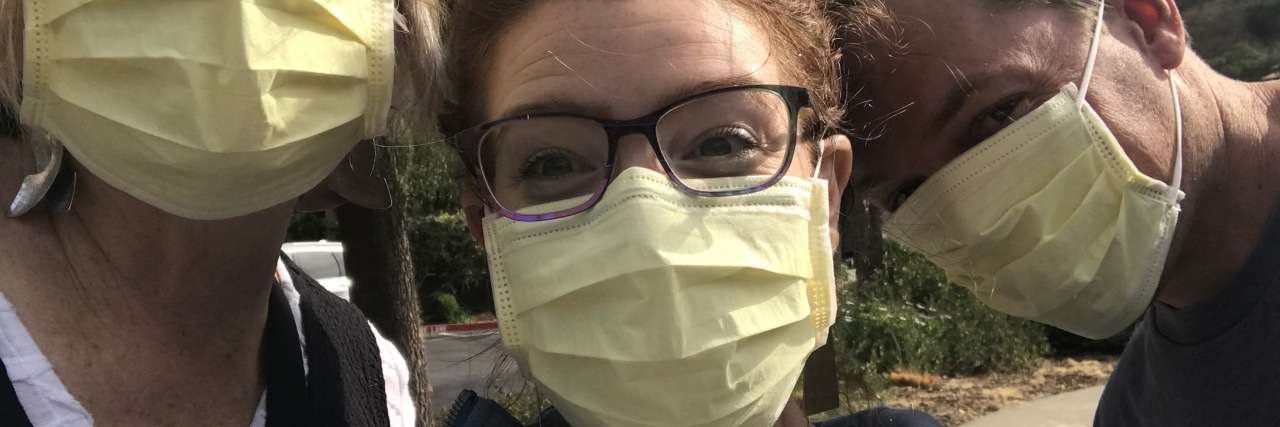What I've Learned About Body Image Since My Double Mastectomy
The other night, I had a long and involved dream that ended with Robin Williams telling me I “used to be cuter.” The following night, I dreamed I had a 5-inch-long black chin hair and nobody told me.
Clearly, I’m wrestling with some body image feelings.

Breast cancer involves a lot of appointments with a lot of different people. Breast surgeons, radiologists, plastic surgeons, mammography technicians, MRI technicians, CT technicians, nurses, breast oncologists, radiation oncologists… the list goes on and on. Every one of these people is highly, highly trained in their field and excellent at their job. They talk to you about your cancer as if you are one of thousands — because you are. Your body is poked, prodded, manipulated, cut open, sewn shut, scanned, screened, dressed and undressed. All of this is done with the utmost care, but it still leaves you with the distinct feeling that your body is no longer your own.
Right after my double mastectomy, I vaguely remember being wheeled into my hospital room from recovery and being lifted from the gurney to the hospital bed using a sheet. One specific nurse wasn’t being gentle enough with me, and I was angry. I felt like a hunk of meat, not a person. I was in excruciating pain, and to her I was just another broken body that needed to be moved.
But throughout all this, most everyone looks you in the eyes and sees you for what you really are. Your body might be broken (hopefully temporarily), but you’re a person, often a terrified person, with friends and family who love you and are terrified too.
When your body doesn’t “work,” you realize two things simultaneously:
1. Our bodies are not who we are. Whether they work or not, we’re still in there. I once asked my dad when he felt like a grown-up, and he responded, “Sometimes I still look in the mirror and think, ‘Who’s that old guy?!’” All the people in the hospital beds, in the nursing homes… they are still in there, the same people they’ve always been. Our bodies mean nothing.
2. When our bodies don’t work, life can really suck. We might still be in there, but if you can’t walk, go to the bathroom on your own, lift a water bottle, take your child to school or speak, life can at times seriously suck. So while our bodies mean nothing, they really mean everything. Without them, we can do very little in this world.
My good friend and work wife Amber came to visit me recently, and she recalled a story about me trying to quit sugar. It did not go well. I’ve always felt like I had a few extra pounds I’d like to get rid of and that I should eat more greens and less animal products, quit processed foods and exercise more. I also knew I was high risk for cancer. Plus, I suspected I had a dairy allergy that was causing me a lot of discomfort. I’ve always known these things, and I never did a darn thing about it.
Yet, when my daughter was a baby and I discovered she was allergic to dairy and wheat through my breast milk, I gave up both in a heartbeat. Despite suspecting my own dairy allergy, I was never willing to put my own health before a hunk of cheese. Cheese is delicious, so screw it, I thought. Plus, sugar is delicious, and I’m young, and cancer is a threat but not really a threat, and I’m sure I’ll be fine.
But I am no longer fine. There is no mistaking it. I have lost both my breasts, and I have the long road of chemo, radiation and emotional recovery ahead of me. My body may not be who I am, but I have resolved to take better care of it. I finally understand it’s the only one I’ve got, and if it doesn’t work right, life is not always fun.
My chest may look like a war zone to me, but I’m regaining strength in my arms. I can walk up the driveway (which is super steep) without pausing. I can buckle my own seatbelt.
When I think about “kicking the crap” out of cancer, I immediately think of a warrior going into battle. But really, kicking the crap out of cancer is more about listening to your body and helping it heal. It means green smoothies, vegetables, taking naps and enjoyable exercise. It means letting people help you. It means walks in nature and being grateful for the small things — like for example, this morning I washed my own hair without assistance.
I no longer care what my body looks like. This is not about 10-15 pounds, breast prostheses with scars all over them or cellulite on my thighs. This is about a functional body — one that can climb stairs, run with my child, and live long enough to see my great grandchildren.
Follow this journey on Mighty and Bright.
We want to hear your story. Become a Mighty contributor here.

